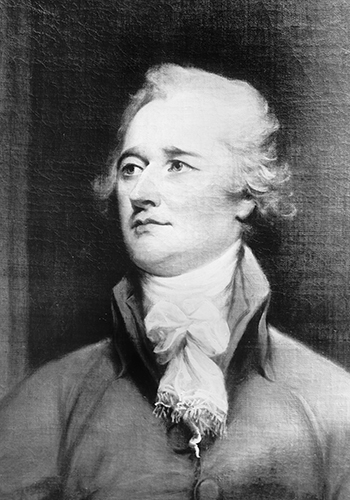Outcome
The news stories of the Revolutionary War period continue to impact American society today. As recently as 1996, a congressional commemoration, HR 1776, was passed "In commemoration of Black Revolutionary War patriots and the 275th anniversary of the birth of the 1st Black Revolutionary War patriot, Crispus Attucks, who was the 1st American colonist killed by British troops during the Revolutionary period . . .”
During the early years of the republic, the fundamentals of journalism began to take root. Journalists attempted to keep the public informed about British actions and atrocities. They endeavored to unify the disparate parts of the colonies and keep them engaged in the fight for independence.

Sam Adams by John Singleton Copley, c. 1772. Library of Congress
Though not in the form of newspapers or broadsides, The Federalist Papers were reprinted in major newspapers across the thirteen states. These writings not only informed the public of the intricacies of the Constitution but also educated the public on the intricacies of their government. They serve today as a guide for understanding the thinking of those who wrote the Constitution.
Newspapers and pamphlets played a role in supporting the partisanship that emerged after George Washington left office. Newspapers launched scathing attacks on opposing political factions who disagreed over whether or not to build a strong federal government and include a bill of rights in the Constitution. Turmoil among political parties continues to this day, with partisanship playing a more critical role at certain times in history than others.

The Farmington Times. Farmington, Missouri. March 29, 1918. Library of Congress
To restrain criticism of the young government and avoid personal scrutiny, the Federalist Congress passed the Alien and Sedition Acts in 1798, which President John Adams signed reluctantly. Many newspaper editors and writers who openly attacked the Federalists were sent to jail, accused of sedition against the government. The political opposition retaliated in kind, resulting in one of the most acrimonious campaigns in American history.
Echoes of the arguments around the 1798 Alien and Sedition Acts continue to this day. More than a century later, the Sedition Act of 1918 made it illegal to express opinions that criticized the government during World War I. It was repealed two years later after a public outcry and the arrests of more than two thousand people, mainly immigrants and laborers.
Discuss the following questions:
- What does Crispus Attucks’s commemoration two centuries after his death tell you about our understanding of history?
- What was the role of The Federalist Papers back in the 1780s and today?
- How did newspapers contribute to partisanship in the early days of the republic and how does that partisanship continue in the press today?
- How can criticism of government officials and their actions lead to retaliation against the press? Do you feel the government should have this kind of power? Why or why not?





